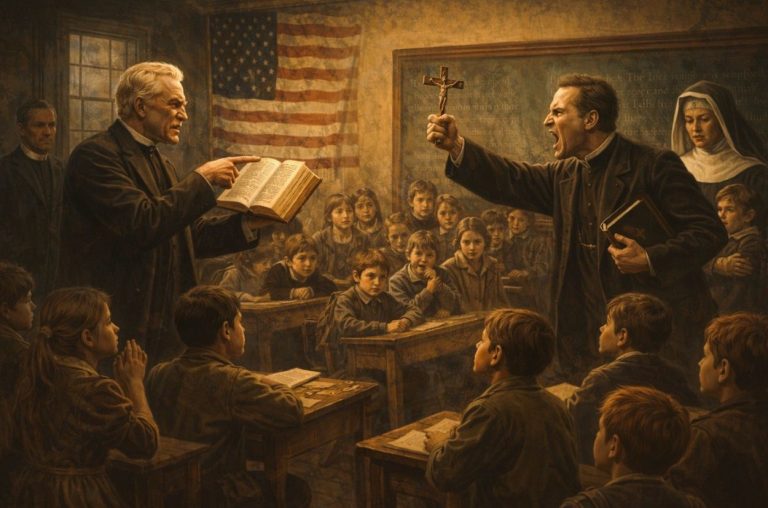

Judge Gallagher’s ruling demands a course correction, not just for the Department of Education but for how the federal government engages sensitive civil rights issues.

By Matthew A. McIntosh
Public Historian
Brewminate
A Legal Reset in the Classroom Debate
In a comprehensive 76-page decision, U.S. District Judge Stephanie Gallagher of Maryland declared two sweeping directives by the Department of Education aimed at ending diversity, equity, and inclusion programs in schools, unlawful. The February 14 guidance and related certification requirement had threatened the removal of federal funding from institutions that engage in any race-based decision-making. Gallagher’s ruling sends a clear message: procedural missteps and vague language cannot be used as tools to chill educators or rewrite civic norms.
Her decision underscores that even judges appointed by the same administration that issued the directives are bound by law, process, and constitutional principles, even amid political pressure.
Process Over Policy: The Core of the Decision
Procedural Shortfalls and Administrative Law
Judge Gallagher’s opinion does not explore whether DEI programs are good or bad. Instead, her legal focus was fiercely procedural. She found that the Department of Education bypassed the Administrative Procedure Act’s notice-and-comment requirements, effectively issuing a new rule without the necessary democratic procedures. That rule, she argued, significantly expanded the government’s authority over teaching, scholarships, housing, and graduation ceremonies, issues that fall outside a narrow interpretation of Title VI of the Civil Rights Act.
The content of the guidance sustained her point: phrases like “systemic and structural racism” and classifications of DEI as “preference to certain racial groups” suggested new legal obligations. That changes the law, not restates it, making the requirements invalid under due process norms.
A Chilling Effect on Educators
Beyond administrative missteps, Gallagher noted the profound impact on educators. The vague language and the threat of defunding created a climate of self-censorship. Teachers worried they could face punishment just for discussing history or offering inclusive support services on campus. In her ruling, the judge emphasized that speech and constitutional protections endure even in the charged atmosphere of political debate.
Broader Context: National Backlash and the Legal Continuum
Coordinated Judicial Pushback
Maryland was not the only jurisdiction to push back. Courts in New Hampshire and Washington, D.C., had already blocked similar directives. Together, these rulings reflect resistance to overbroad interpretations of a Supreme Court decision on race-conscious admissions. The collective pushback signals that the judiciary is unwilling to allow executive shortcuts in civic education or funding enforcement.
Cultural and Educational Implications
Educators and civil rights groups, such as the American Federation of Teachers and the American Sociological Association, hailed the ruling as a vindication of academic freedom and inclusive learning environments. For decades, classrooms have sought to support historically marginalized communities through tailored resources and intentional policies.
At a cultural level, forcing a ban on DEI programs ignores deep-seated inequalities in education. Programs that foster mentorship, belonging, and opportunity for underrepresented students have helped bridge gaps in retention, graduation, and representation. Removing them risks worsening those divides.
Looking Ahead: Politics, Policy, and the Law
Overview
Judge Gallagher’s ruling demands a course correction, not just for the Department of Education but for how the federal government engages sensitive civil rights issues.
For the Education Department
Trump or any future administration could attempt to rewrite the policy, but they must do so through legal channels, offering transparency and public input. Rushing in directives without procedural integrity undermines both law and trust.
For Schools and Universities
This ruling provides clarity and confidence for educators to continue DEI work without fear of losing funding. It reasserts that academic environments need space to explore history, identity, and equity, especially in civics and social science classrooms.
For the Public and Policymakers
This decision is a reminder: legal processes aren’t optional steps in policymaking. They safeguard democratic values and ensure debate is informed publicly and not imposed unpredictably.
Originally published by Brewminate, 08.21.2025, under the terms of a Creative Commons Attribution-NonCommercial-NoDerivatives 4.0 International license.


